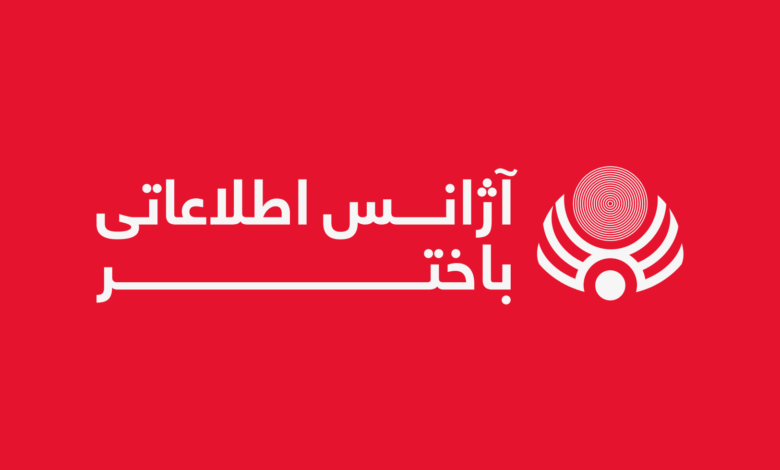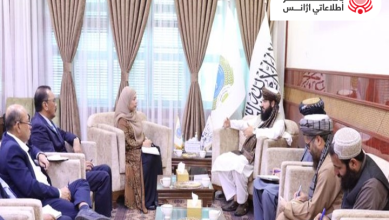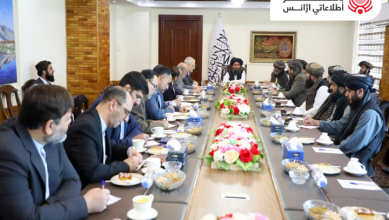
Sunday, March 31, 2013
Kabul (BNA) On the invitations of Indian foreign minister, a group of Afghan journalism departed for Indian capital New Delhi on March 10, 2013 to attend a fourteen day workshop on journalism.
The workshop held on 11, 03, 2013 in Jamia Millia Islamia University in the hall of concerned institution and was officially inaugurated by Prof. Muhammad Obaid Sidiqi director of the workshop.
In this inauguration speech, Mr. J.P Singh representative of Indian foreign affairs ministry evaluated media situations in the Asian region particularly in Afghanistan and role of Afghan journalism on media activities and expressed satisfaction over development of the country in media filed regardless of social challenges and insecurities.
Latter on Prof. Muhammad Obaid Sidiqi director of the workshop presented his views on Indian media and said that Indian media passed through long times and achieved this much expansion and growth and Indian media had played great role in 1946 and later our geo-politic changed after Indian nation achieved freedom and emerged as a sovereign country. Professor Sidiqi also pinned towards Indian renowned newspaper same as Hindustan Times. The telegraph Patriot, the Hindu and the economist and said the upper newspapers are professionally printed in according to the requirements of the current world scenario and announced the Indian Express as one of the influential and effective Dailies in the country as it has put effective impacts on Indian Govt. policy and all of the media groups constituting audiovisual and print media maintain their freedom.
Professor Sidiqi said that over all 82237 newspapers exist in Indian which pursue their journalists mission and from these numbers 32,000 of them are Hindu language, 11478 English alongside 400 TV stations from which 100 News Channel and another 150 entertainment channels facilitate the nation through their broadcastings. The workshop was also addressed by Hindustan editor Mr. Shivaji Sarkar and he evaluated Indian democracy and expansion of newspaper and said that Indian democracy is one of the greatest democracies of the world and media played constructive role on democracy since 1966 and added that print media retains major reputation in Asian countries but in European countries print media getting digital due to expansion and development of internet and information technology and access of the people to media further energies them to defend from their fundamental rights.
On the second day of the workshop, Hindustan Times political editor evaluated the role of Indian women in media and said that Indian women were affiliated with media since 60s while previously before the same date the role of women weren’t tangible and latter during 80s role of women in media were expanded and now in the 21st century Indian women role in media outlets are remarkable and attained extraordinary growth and currently the women offering their journalistic services in over all 400 TV stations and in print media sector, the women serve in high ranking positions as an editors, editor-in-chiefs and reporters while in legislative and political sector from overall seats 10% are occupied by women lawmakers and another one million maintain great reputation and central role on leadership of local councils. The Indian women also play role on formation of armed services of the country comprising national army navy and air force and Madam Gandhi had played historic role on awakening the Indian women and 50% of the overall population of India constitute women.
On the 4th day of the workshop Mr.KG Sures, CEO of Zee TV and political editor of press Trust of India evaluated the ethics of journalism filed and emphasized upon the journalists to obey journalistic ethic s their media missions and asked them to act on neutrality and avoid supporting particular groups or organizations while reporting ad journalists should also struggles to reflect the truths in neutral and clear way and should obey ethical journalism principles and the journalist community should also chant against censorships so that the freedom of expression is sustained in its real meaning and philosophy.
The workshop was also addressed by Mr. Satyanarayan consulting Editor Afro-Asian News and he pointed out the design of newspapers. He said that 40% of the overall pages should be used for commercials purposes and advertisements and another remaining 60% should be filled with news article. Mr. Joseph Gathia, Consultant, National Human Rights, Commission and editor, JEM also addressed the gathering in his speech he talked about humanitarian rights of the journalists and minorities in India. He added that the women and children constitute deprived social segment of India and said that Muslims and Sikhs constitute the biggest minorities in India and the Indian constitution and media laws urge is that the people should be safeguard from supervisions and children under the age of 14 weren't supposed to be recruited to jobs. Mr. Gathia stated that a special commission was formed by the Prime Minister Manmuhan Singh to assess the situation of minorities and overall living condition on Indian people as statistics show that 24% of the overall population of the country is consisting of impoverished community and from overall 98 million children 10 million of them are doing heavy jobs and currently Indian government has taken the responsibility and pay monthly fee of 90% of children belong to poor families, During the 14 day tour, Afghan journalists also met with Shaida Muhammad Ambassador of Afghanistan to India and in the meeting Afghan ambassador pointed out the close brotherly relations with India and said that both nations are bounded in close historic ties since the course of time and Indian considers Afghanistan as a strategic partner in the region and Indian Govt. provided nearly $2 billion financial assistance to Afghanistan since 2002.
Ambassador Shaida Muhammad also evaluated problems of Afghan refugees in India and said that currently 6000 Afghan students are pursuing their higher education in the Indian universities. During the journey, Afghan journalists were also invited by Indian foreign affairs minister Sulman Khurshed announced bilateral strategic cooperation partnership with Afghanistan in favor of regional peace and stability.
The Indian foreign minister Sulman Khurshed said that both nations have enjoyed close diplomatic, cultural and political relations during the course of history and emphasized that India has certified major projects in Afghanistan and with consideration of that the Indian Govt. forged strategic cooperation partnership with Afghanistan adding that the strategic agreement between the two nations shouldn’t be miscalculated as it is never intended to damage interests of the third country. At the end of the meeting, Indian foreign minister responded to the questions asked by the Afghan journalists. During the tour Afghan journalists also visited Indian historic sites same as Taj Mahal, Awrangzeb Shrine, Qutub Minar, Indian Museum including visit of Hindustan Times office PTI agency which represent Indian culture and way of life and were amused from the group of dancing of Indian dancers. At the final stage of the workshop, the Afghan journalists were awarded certificates by Professor Muhammad Obaid Sidiqi. This is while India could be as one of the strategy of ally of Afghanistan in the region and considering the upper requisite Afghan stakeholders retain trusted ideas on Indian role in the region.




